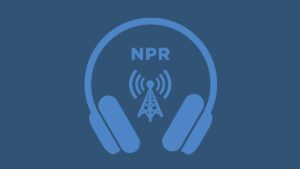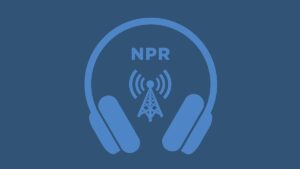Virginia, New Jersey governor races could shift government shutdown calculus
As the gubernatorial races in New Jersey and Virginia approach, political analysts are keenly observing how these elections may reflect public sentiment regarding the ongoing government shutdown in Washington, D.C. Although the shutdown, which began on October 1 due to a failure to reach a spending agreement, is not expected to directly impact the gubernatorial contests, the outcomes could serve as a crucial indicator of voter attitudes toward the parties involved in the standoff. Bill Wichterman, a former advisor to President George W. Bush, emphasizes that the election results would need to be significantly pronounced—such as a Democrat winning by a larger-than-expected margin—to influence the current stalemate in Congress. He notes that if the elections yield typical results, Republicans are unlikely to perceive them as a cause for concern.
Democratic candidates Abigail Spanberger in Virginia and Mikie Sherrill in New Jersey currently lead their Republican opponents, Winsome Earle-Sears and Jack Ciattarelli, respectively, albeit by narrow margins of less than ten points. Historically, a good performance by the minority party in gubernatorial races following a presidential election is not unusual, and Wichterman suggests that a Democratic victory in these blue states would not necessarily alarm Republicans. However, should the Republican candidates pull off unexpected wins, it could signal deeper issues for Democrats and provoke introspection within the party. The ongoing government shutdown, largely driven by disagreements over COVID-era funding and spending measures, has created a backdrop of tension, yet state-level elections are expected to proceed without significant disruption from federal funding issues.
Despite the government shutdown, the administration of elections in New Jersey and Virginia is largely insulated from federal influence, with states primarily responsible for their own election processes. Federal funding, such as the $272,700 allocated through the Help America Vote Act, supports state efforts to enhance election security and infrastructure but does not dictate the conduct of elections. Analysts believe that the outcome of these gubernatorial races could also influence the White House’s approach to the shutdown. Currently, former President Donald Trump remains a pivotal figure in the Republican party’s stance, and his lack of engagement in negotiations has left Democrats feeling frustrated. As the elections draw near, the political landscape remains charged, with the potential for significant implications depending on the results in New Jersey and Virginia.
Related articles:
– Link 1
– Link 2
Next week’s governor races may tell us more about where the shutdown fight is headed than the
shutdown
itself will show about those elections.
While the gubernatorial races in New Jersey and Virginia will look largely untouched by the lapse in government funding, their results could serve as a barometer for public perception over who’s at fault for the standoff dragging out in Washington, D.C.
But only if the results stand out.
Bill Wichterman, former special assistant to President
George W. Bush,
said the two parties seem entrenched in their positions with no signs of blinking anytime soon. Having seen past shutdown conflicts up close as a policy advisor to Senate Majority Leader Bill Frist, R-Tenn., and a chief of staff for other offices, he believes the election results would have to look dramatic to change the resolve of lawmakers.
“Let’s say it’s normally a 5-point win, and it turns out to be a 15-point win,” Wichterman said, speaking to the possibility of a Democrat winning in both races. “Yeah, that will get people’s attention. But if it’s like a normal 5-point win, whatever the norm is, I don’t think Republicans will look at that as alarming.”
Both Democratic candidates, Abigail Spanberger in Virginia and Mikie Sherrill in New Jersey, lead their Republican challengers with just a week to go until Election Day. Republicans Winsome Earle-Sears, the Virginia candidate, and Jack Ciattarelli in New Jersey both trail by under 10 points.
CIATTARELLI HITS SHERRILL FOR VOTING TO AVERT SHUTDOWNS UNDER BIDEN BUT NOT TRUMP
In the aftermath of a presidential election, Wichterman said a good performance by the minority party isn’t particularly surprising; that would fit the historical trend for how the public reacts to a new president of either party.
“A Democratic win in those two states? Does that freak out Republicans? No, they’re both blue states,” Wichterman said.
But if Republican gubernatorial candidates can pull upsets, Wichterman believes that changes things.
“I think Democrats would look at that and say, ‘My gosh, we’re not doing well. What’s going on here?’ That would be disruptive.”
Government funding ran dry on Oct. 1 when lawmakers failed to reach an agreement over a Republican-led short-term spending bill that would have kept the government open through Nov. 21. Democrats, led by House Minority Leader Hakeem Jeffries, D-N.Y., and Chuck Schumer, D-N.Y., have opposed the measure on 12 separate occasions, demanding Congress first consider the extension of COVID-era emergency subsidies for Obamacare premiums.
Republicans have rejected those demands out of hand, maintaining that the subsidies have nothing to do with the question of government funding.
SHUTDOWN IGNITES STRATEGIST DEBATE: WILL TRUMP AND GOP PAY THE POLITICAL PRICE IN 2026?
Despite the lapse in funding, state-level elections will remain largely unaffected.
On a practical level, the federal government largely leaves states to carry out their own elections and plays a minimal role in their administration. In many cases, the federal government awards funding for states to update, modernize or shore up security for elections.
In one of the most notable examples, the Election Assistance Commission (EAC) doesn’t directly help organize state-level elections. Instead, it helps provide funding for security and infrastructure-related expenses through grants established by the Help America Vote Act (HAVA).
New Jersey and Virginia have each already received $272,700
through HAVA grants in 2025
. Congress approved that funding in appropriation legislation earlier this year.
Wichterman believes that another way that the election could tip the scales for the shutdown is how the White House reacts. Even if lawmakers in Congress stay put after the election, President
Donald Trump’s
direction over government funding could force a change in position for lawmakers.
So far, Trump hasn’t budged and has his focus elsewhere. On Monday, Trump traveled to Japan to meet with the country’s emperor, among other officials.
TRUMP’S SHADOW LOOMS LARGE OVER HEATED RACES ONE MONTH BEFORE ELECTION DAY
“I think Democrats have been waiting for Trump to crack [on the shutdown],” Wichterman said. “And he’s not. I’ve been in lots of shutdown fights starting back in ‘95. I know what it feels like when you’re part of a party that’s taking on water. Doesn’t feel that way on the Republican side yet.”
Democrats expressed similar thoughts as they
shot down a supplemental funding
bill to pay essential government workers. To them, the gridlock on Capitol Hill likely will remain until something provokes Trump to get personally involved in negotiations.
Sen. Chris Van Hollen, D-Md., believes the president is the only Republican voice that matters.
“He says, ‘Jump,’ they say, ‘How high?’ And so, he’s the one that needs to come to the table,” Van Hollen said when asked about shutdown-ending negotiations.
Eric
Eric is a seasoned journalist covering US Politics news.



